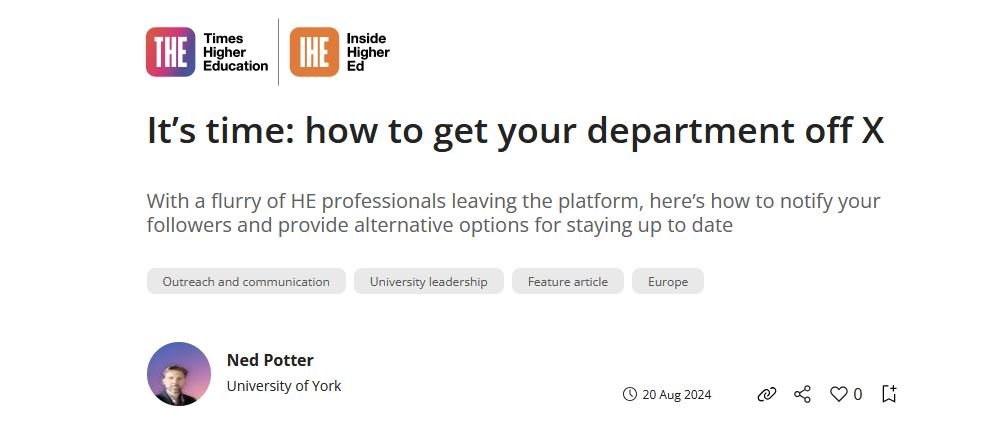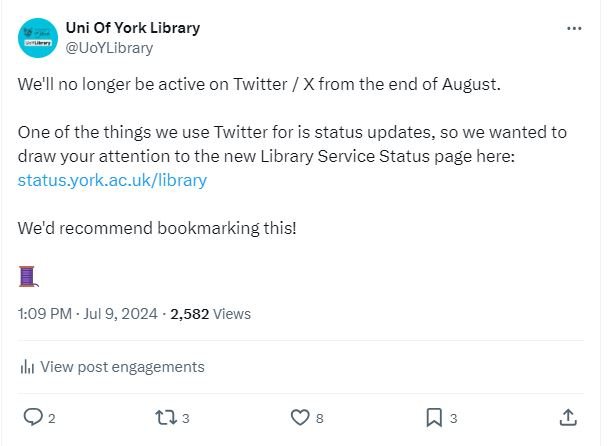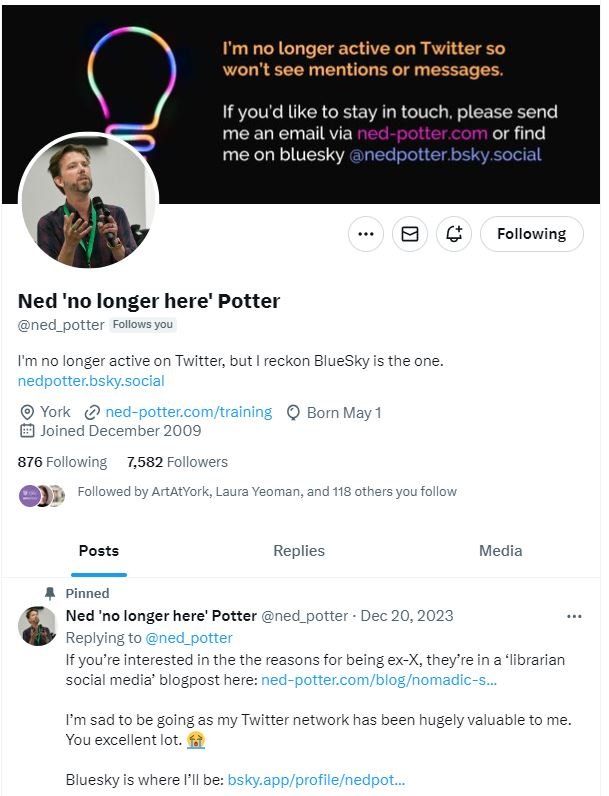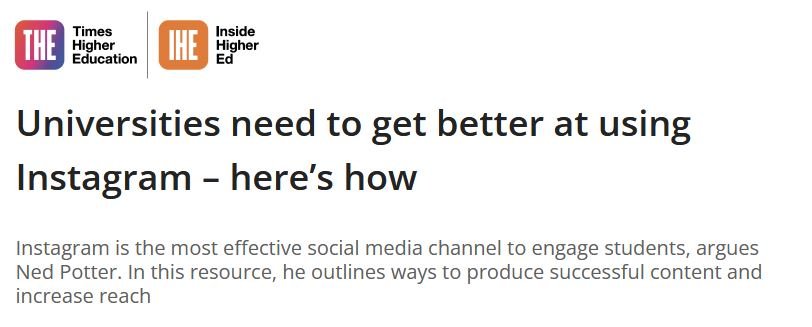If you’re interested in finding out more about Miss B’s approach, here’s a good article she wrote.
So why the ‘but it’s not that simple’ in the section header? Well, not all school library social media is aimed at the students. If your target audience is the parents, then things are lot more complicated - Twitter would have been good but isn’t any longer, which really leaves Facebook as a the primary method of reaching that audience. Not great, but worth doing for now if parent-engagement is part of your strategy. (The previously mentioned book-chat on Threads means it may be useful for school libraries in the future too.)
Special Libraries - Pharma, Health, Law etc - may need to spend more time on LinkedIn
The smaller and more specific your audience, the more useful LinkedIn is. If your library service can connect with every solicitor in your law firm, you’ll get useful intelligence that will prompt useful interaction.
As you’ll have guessed by now I’m pretty sure most libraries can benefit from a focus on Instagram, but that isn’t a universal truth. I’m not sure a Pharma or Law library will have much joy there. Health Libraries have more potential as there is a huge amount of use among healthcare professionals on the platform (specifically including while they’re at work, which is of course the ideal time to hit them with useful info!) but I’ve not yet seen a health library account totally cleaning up on Intagram - that’s not to say there isn’t one though! If you spot one, let me know.
What about Twitter / X alternatives like Bluesky, Mastodon, Threads, Discord and Spill?
None of these appear to be a good place for library accounts at the current time. I know of a handful of libraries and archives now on Bluesky, and I hope they make a go of it, but there’s not exactly a flood of case studies for the rest of us to learn from. (The Bodleian are also there and doing brilliantly as always, but both they and the British Library have such immense cultural capital I’m always wary of taking their success as a true indication that the rest of will also succeed somewhere…) I’ve created a Bluesky list of libraries and archives on the platform, for those already there, which I’ll keep adding to as we go along, so the rest of us can see how the early adopters are doing and adapt accordingly!
If you’ve read Part 1 of this post you’ll know I’m all in on Bluesky as the long term Twitter replacement for us as librarians, but I’m yet to see enough a movement from our target audience towards the platform to think it is ready for the organisational / institutional side of things.
I don’t know of any libraries currently making Mastodon work well (again, please let me know if I’m wrong! I’d love examples of orgs rocking Mastodon) and the somewhat chaotic effect of the multi-server the platform has means you could end up putting in a LOT of work and really only reaching your peers, not your target audience.
Discord was talked about a lot when Twitter first started going downhill, but it longer really gets mentioned as a viable alternative. It consists of several smaller, focused networks rather than one big one, so is unlikely to be suitable for a library’s needs.
Threads is an interesting one… In Part 1 I discussed the issues with it (very small active user group, not available in the EU [EDIT: since I wrote this post, Threads has become available in the EU after all]) but there are libraries making it work, for sure. Check out LMUlibrary for a great example. A real problem with it is once you’ve enabled your Threads account, it cannot be deleted unless you also fully delete your Instagram. So if you decide to give Threads a try and it doesn’t really work out, your threads account will be other there more or less forever, representing your library even though it’s not being actively used.
As part of a pilot at University of York my own library is on Threads, and we have a relatively health number of followers. Our posts get some engagement but I’m not convinced we’re nudging the needle on behaviour - fundamentally I put time into library social media because I want our users to actually DO something because of it. At the moment Threads feels very much like a classroom with no teachers - all the social media admins for brands and orgs are having a great time and producing some genuinely funny content, because no one is checking on them… I sort of enjoy this, but I also don’t want to sink any time into it because whilst I could try and make @UoYLibrary a fun Threads account that people generally like, that wouldn’t actually help me further the library’s strategic aims. That is the bottom line, and why we’re on social media at all.
Spill is an interesting site that may become a viable Twitter alternative in time, launched last year by former Twitter employees and specifically aimed at creating safety for diverse communities. You can read more about it here - at the moment it’s still in Beta and there’s a waiting list to join, so it’s hard to assess in greater detail, but I’d love this one to take off.
Have I forgotten anything important? let me know below
I always encourage comments but have recently realised my Comments box wasn’t displaying properly so no one could leave any… A short CSS code-injection later and that should now be fixed - so if I’ve left out a key issue or a key platform, I’d love to hear your perspective!





